Introduction
Overeating isn't always about willpower. Sometimes, even those committed to healthy lifestyles find themselves reaching for extra helpings or indulging in unnecessary snacks. But don't worry, you're not alone! Many common habits and hidden factors can contribute to overeating, often without us even realizing it.
The good news: by identifying these sneaky mistakes and implementing simple strategies, you can regain control of your eating habits and achieve your health goals. Let's dive into the top 8 culprits behind overeating and explore practical solutions to overcome them:
1. Skipping Meals:
Thinking you'll save calories by skipping meals often backfires. Feeling overly hungry later leads to larger portions and less mindful choices.
Simple Strategy: Eat regular meals throughout the day, even if they're smaller portions. Include protein and fiber to keep you feeling full and satisfied longer.
2. Distracted Eating:
Eating while watching TV, working, or scrolling through social media can lead to mindless overconsumption. You might not even register how much you're eating!
Simple Strategy: Create a dedicated eating space, free from distractions. Focus on the taste, texture, and aroma of your food to promote mindful eating.
3. Emotional Eating:
Turning to food for comfort, stress relief, or boredom can become a harmful habit. Emotional eating can lead to overeating even when you're not physically hungry.
Simple Strategy: Identify your emotional triggers for overeating and develop healthy coping mechanisms. Exercise, meditation, or journaling can provide alternative outlets for managing emotions.
4. Portion Distortion:
Restaurant portions and even packaged snacks are often much larger than we realize. This can lead to underestimating calorie intake and overeating.
Simple Strategy: Use measuring cups and spoons to control portion sizes and compare them to recommended serving sizes on food labels.
5. Sugary Drinks:
Sugary beverages like soda, juice, and energy drinks are calorie-dense and don't provide satiety. They can contribute to increased appetite and overeating later.
Simple Strategy: Replace sugary drinks with water, unsweetened tea, or black coffee. Infuse your water with fruits or herbs for added flavor.
6. Lack of Sleep:
When sleep deprived, our bodies produce more ghrelin (hunger hormone) and less leptin (satiety hormone). This can lead to increased cravings and overeating.
Simple Strategy: Prioritize getting 7-8 hours of quality sleep each night. Establish a relaxing bedtime routine and create a sleep-conducive environment.
7. Not Planning Meals:
Feeling unprepared often leads to grabbing convenient, processed foods that are higher in calories and lower in nutrients.
Simple Strategy: Plan your meals and snacks in advance. Stock your pantry with healthy ingredients and prepare grab-and-go options for busy days.
8. Ignoring Hunger Cues:
Pushing through hunger pangs only leads to stronger cravings and overeating later. It's important to listen to your body's natural hunger and satiety cues.
Simple Strategy: Eat regularly throughout the day and stop when you feel comfortably full, not stuffed. Pay attention to your body's hunger signals and respond to them promptly.
Bonus Tip: Focus on making these changes gradually and celebrate your progress. Remember, small changes over time can lead to big results!
Conclusion
By understanding the common pitfalls and implementing these simple strategies, you can break free from overeating and achieve a healthier, happier relationship with food. Remember, you've got this!

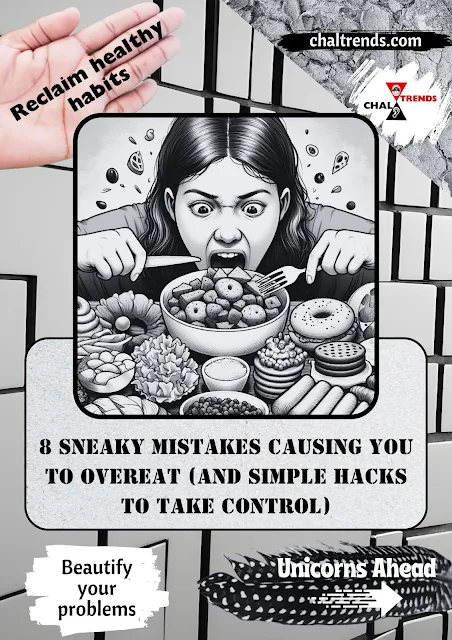
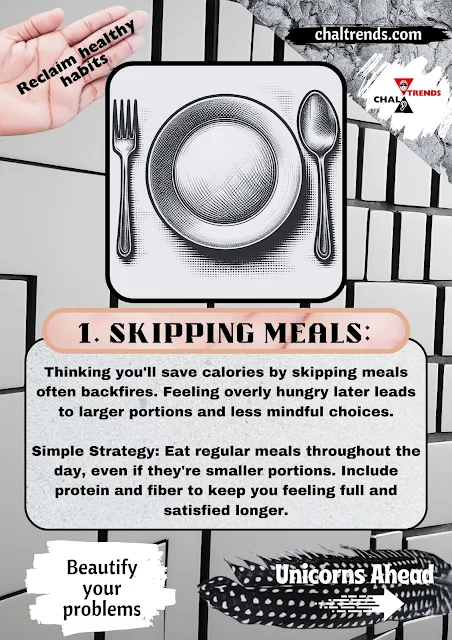
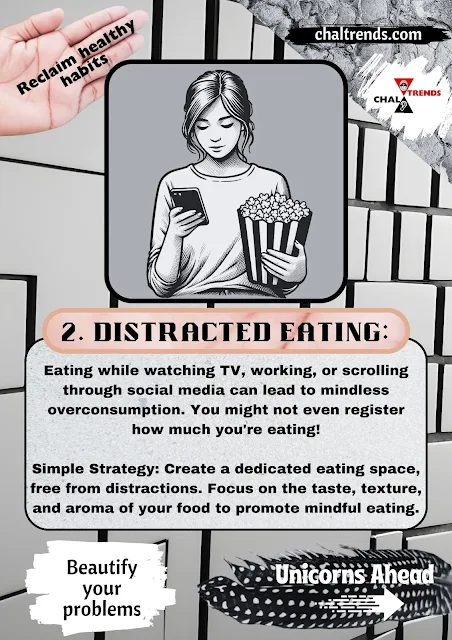
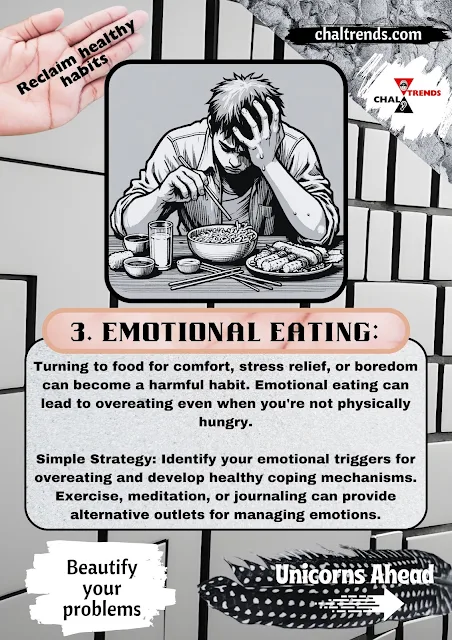
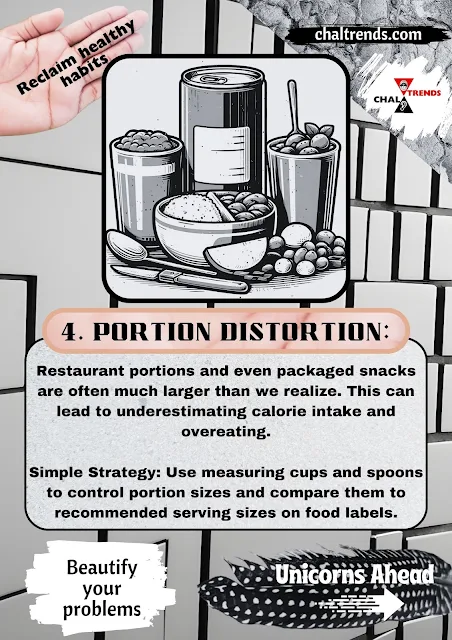

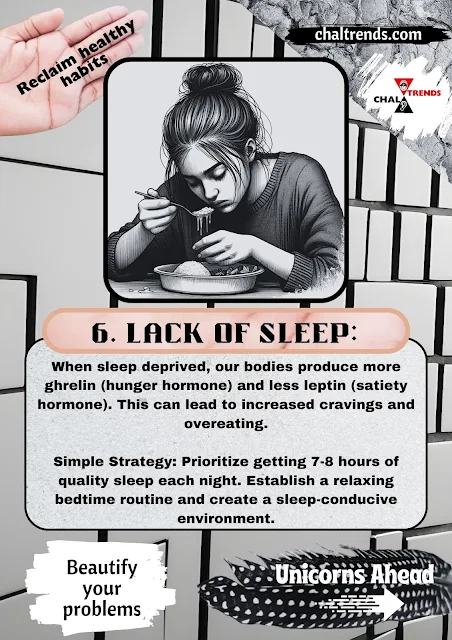
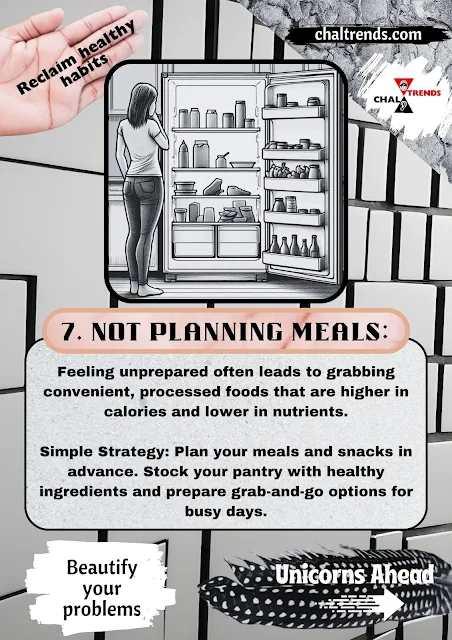
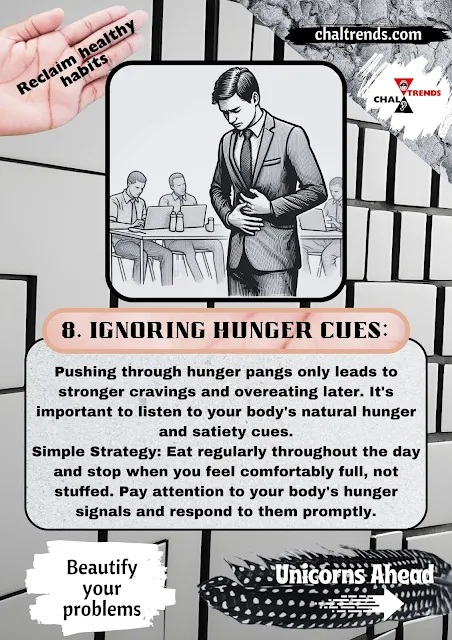
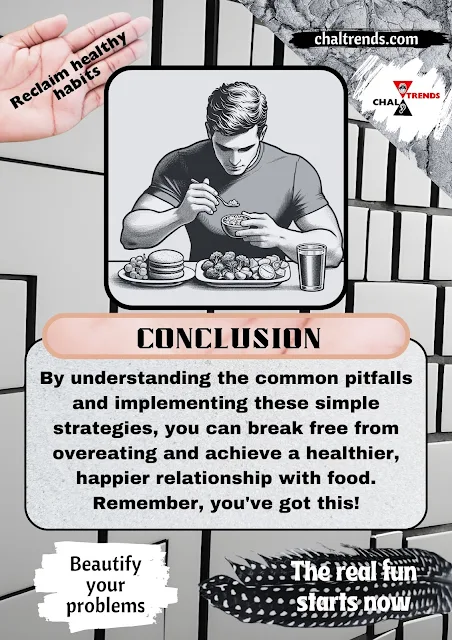
.jpeg)





0 Comments